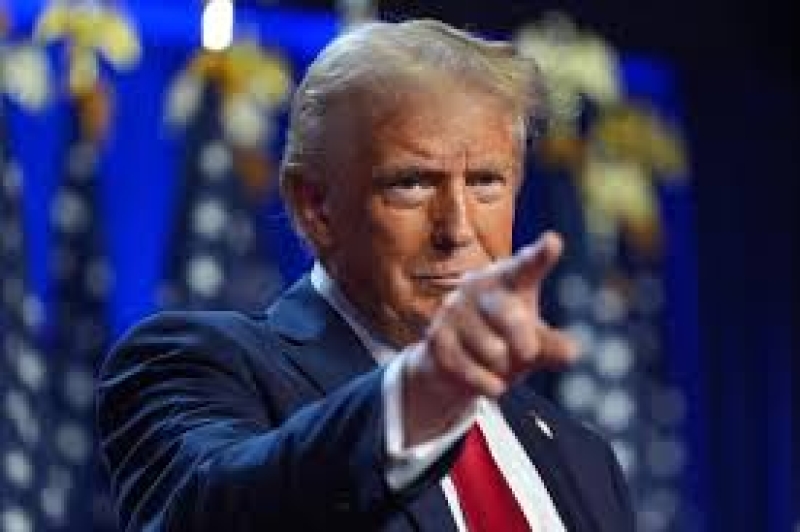- Bangladesh Heads to First Gen Z-Driven Competitive Poll |
- EC Lifts Mobile Phone Ban, Bars Photos Inside Booths |
- Youth participation vital to BD’s democratic future: C’wealth Group |
- Stocks retreat on week’s first trading day as turnover drops |
- Free education for girls up to honours if BNP wins: Zubaida Rahman |
Trump nears US presidential win

Former U.S. President Donald Trump moved close to an election victory early Wednesday with wins in several key states, including Pennsylvania, leaving former Vice President Kamala Harris with a narrowing path to a White House term.
In the U.S. system, where the presidential election is tallied in a series of state-by-state contests, both Harris and Trump were quickly declared winners after polls closed Tuesday in states where their parties enjoy clear majority support. Meanwhile, seven so-called battleground states were expected to tip the balance and determine the winner.
Trump pushed ahead with important wins in those areas, combining his victory in Pennsylvania with wins in Georgia and North Carolina to give him at least 267 of the 270 electoral votes needed to clinch a majority. Harris would need to win all of the outstanding states, including Michigan, Wisconsin, Nevada and Arizona.
In addition, the Republicans took control in the 100-member Senate late Tuesday, but it was not yet known which party would control the U.S. House, reports VOA.
Trump claimed victory early Wednesday as he thanked his supporters at a rally in Florida.
"This was a movement like nobody's ever seen before, and, frankly, this was, I believe, the greatest political movement of all time," Trump said.
He pledged to "fix our borders" and "fix everything in our country."
Trump also said he would work to deliver a "strong, safe and prosperous America."
A Harris campaign official told a crowd of her supporters in Washington that she would not address the gathering overnight but would speak later Wednesday.
The state-by-state electoral system includes different rules for how and when votes are counted, adding to the complexity of how results are reported.
In some states, ballots that are cast in-person before Election Day, or by mail, were allowed to be counted as they came in, leading to faster results. But in other states, those counts did not begin until polls closed Tuesday night, while some states also allowed ballots to be put in the mail as late as Tuesday, meaning final results in those areas will not come for days.
Looming over the eventual result was the prospect of legal challenges. Both the Trump and Harris campaigns were ready with legal experts to contest any irregularities they saw.
A Harris win would make her the country’s first female president. A Trump victory would make him the first U.S. leader since Grover Cleveland in the 1890s to serve non-consecutive terms, reports VOA.
The next president is set to be inaugurated for their four-year term on January 20.
A key foreign policy focus in either a Trump or Harris administration will be relations between the United States and China, including subjects such as trade, Taiwan and China’s actions in the South China Sea.
Vincent Wang, dean of the college of arts and sciences at Adelphi University, told VOA Mandarin that China would approach the prospective presidents differently, including being potentially more aggressive toward the United States if Harris wins.
"China may create some events to give her (Harris) a show of force," Wang said. "After all, the United States is tied up with wars in the Ukraine, and in Israel and Gaza. In the Taiwan Strait, China has already carried out so-called gray area strategy on a daily basis. I think China may expand its gray area strategy closer to Taiwan as a way to a test Harris."
"If Trump is elected, I think China may not dare, because he doesn't go through drafts, he has already said harsh words. If he wakes up today, he might say he's going to raise tariffs by 200%. If he wakes up tomorrow, he might want to bomb Beijing. So I think this so-called this Trump-type deterrent, on the contrary, will make them a little bit more restrained."

